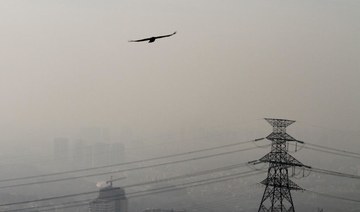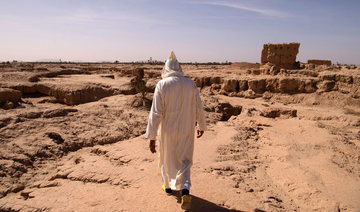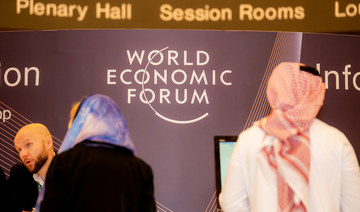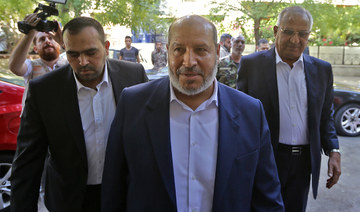BASRA: As Iraq bakes in the blistering summer heat, its hardscrabble farmers and livestock herders are battling severe water shortages that are killing their animals, fields and way of life.
The oil-rich country, scarred by wars and insurgencies over the past four decades, is also one of the world’s most vulnerable to climate change and struggles with a host of other environmental challenges.
Upstream dams in Turkey and Iran have diminished the Tigris and Euphrates rivers, which are also heavily polluted with sewage, waste and agricultural runoff as they flow southeast through Iraq.
Drought has hit the Mesopotamian marshes, said to be the site of the biblical Garden of Eden, where water buffalos and their owners once found respite from summer heat above 50 degrees Celsius (122 degrees Fahrenheit).
In southern Iraq, where the two big streams merge into the Shatt Al-Arab, the reduced flow has caused saltwater intrusion from the Gulf, degrading the waterway that is shaded by lush palm groves on its banks.
“Everything we plant dies: the palm trees and the alfalfa which normally tolerates salt water,” said Rafiq Taufiq, a farmer in the southern riverside city of Basra.
The saline water encroaching ever further upstream has already destroyed thousands of hectares of farmland.
This year, the trend has worsened again, said Alaa Al-Badran, an agricultural engineer in Basra province.
“For the first time the salt entered as early as April, the start of the farming season,” he said.
The problems are exacerbated as decades of military conflict, neglect and corruption have destroyed irrigation systems and water treatment plants.
According to the United Nations, only 3.5 percent of Iraq’s farmlands are watered with irrigation systems.
Rivers are meanwhile often polluted with viruses and bacteria, oil spills and industrial chemicals.
In Basra, where freshwater canals are clogged with garbage, more than 100,000 people were hospitalized in 2018 after drinking water polluted with sewage and toxic waste.
The heat and the water shortages have been a blow to Iraq’s agricultural sector, which accounts for five percent of the economy and 20 percent of jobs, but provides only half of the food needs of Iraq, which relies heavily on cheap imports.
In a nation of 40 million people, “seven million Iraqis have already been affected by the drought and the risks of displacement that it entails,” President Barham Saleh wrote recently.
In Chibayish, in Iraq’s marshlands, buffalo herder Ali Jasseb said he now has to travel great distances to keep the animals producing milk, his family’s only income.
“Every two or three months, we have to travel to find water,” he told AFP. “Because if the buffaloes drink salty water, they get poisoned, they stop producing milk and sometimes they die.”
Raad Hmeid, another buffalo herder, pointed to the sun-cracked ground below his feet.
“Until 10 days ago this was mud, there was water and even greenery,” he told AFP.
In Iraq’s east, cereal farmer Abderrazzaq Qader, 45, said he had seen no rain “for four years” on his 38 hectare (94 acre) farm in Khanaqin near the Iranian border.
The years of drought, he said, had led many local farmers to abandon the land to take jobs as laborers.
In total, “69 percent of agricultural land is threatened with desertification, meaning it is being rendered unfit for cultivation,” Sarmad Kamel, a state forestry official working on the issue, told AFP.
Iraq’s agricultural lands are shrinking further as farmers are selling their unprofitable plots to developers, said economist Ahmed Saddam.
“On the one hand, there is more and more demand for housing, while on the other hand cultivating land no longer creates sufficient income,” he said.
Rather than continue their back-breaking work for little pay, many farmers near Basra have sold their plots, often for “between €25,000 and €70,000 ... huge figures for farmers,” he says.
At this rate, “every year, 10 percent of agricultural land disappears to become residential areas,” he added.
This accelerates a rural exodus into towns and big cities, piling huge pressure on the economic, social and environmental fabric of life in Iraq.
There is little respite in sight, warned Saleh in a recent statement that said “climate projections for Iraq foresee a rise of about two degrees celsius, and a drop in rainfall of nine percent by 2050.”
Another worrying projection says that, by mid-century, Iraq’s population will have doubled to 80 million.
For war-scarred Iraq, climate crisis the next great threat
https://arab.news/mr48b
For war-scarred Iraq, climate crisis the next great threat
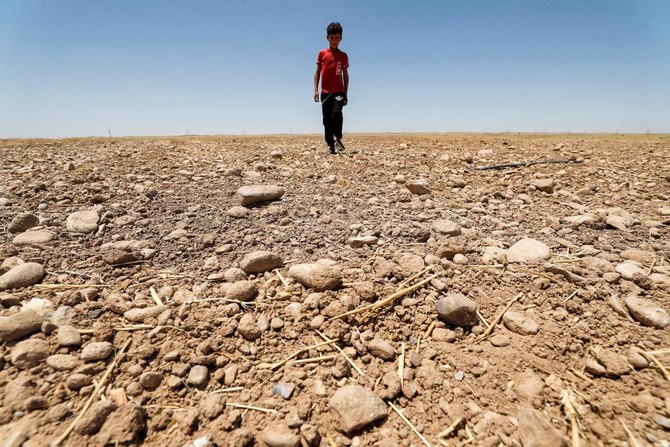
- In southern Iraq, where the two big streams merge into the Shatt Al-Arab, the reduced flow has caused saltwater intrusion from the Gulf, degrading the waterway that is shaded by lush palm groves on its banks
Saudi energy minister, EU official discuss cooperation on clean energy
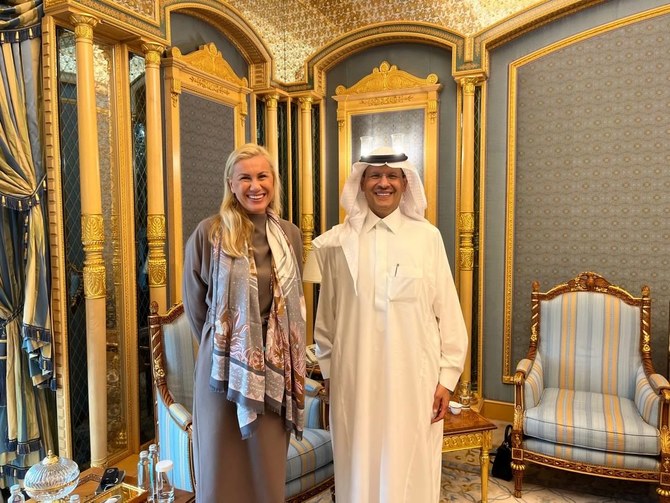
RIYADH: Saudi Energy Minister Prince Abdulaziz bin Salman on Sunday held talks with EU Energy Commissioner Kadri Simson to discuss prospects for cooperation in the field of clean energy.
The top officials met on the sidelines of the World Economic Forum in the Saudi capital, the Saudi Press Agency reported. They discussed ways to strengthen bilateral ties, boost cooperation for the promotion of green energy and advance the goals of the Paris Agreement and ensure the implementation of the outcomes of the COP28 held in Dubai last year.
The Paris Agreement is an international treaty on climate change that was adopted back in 2015. It was negotiated by 196 parties at COP21 in France and covers climate change mitigation, adaptation, and finance.
They reaffirmed the common goals of Saudi Arabia and the EU and the determination of both parties to accelerate private investment in the renewable energy sector, cooperate on electricity interconnection and the integration of renewables into the electricity grid.
The officials stressed the need to strength the electricity supply infrastructure through demand side management smart grid. They also discussed carbon capture, utilization and storage technology and opportunities for industrial partnerships in those sectors.
They also shared their view on building on the UNFCCC, the Paris Agreement and COP28 outcomes. The officials also discussed a Saudi-EU memorandum of understanding to boost cooperation in the energy sector.
According to SPA report, they were of the view that such an MoU should provide a solid and mutually beneficial basis for orienting and anchoring investment decisions in the energy and clean tech sectors, involve and mobilize stakeholders from the public, private and financial sectors, and lay the foundation for a more sustainable and secure energy future.
The European Commission and Saudi Arabia aim to conclude the MoU in the next few months.
Saudi Arabia to host 28th World Investment Conference in Riyadh
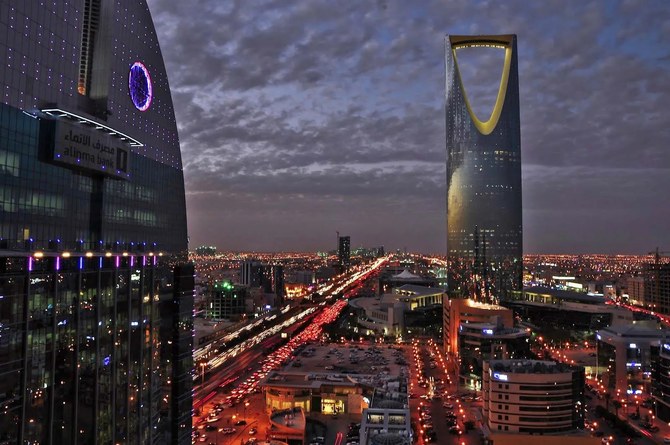
RIYADH: Saudi Arabia is on track to host the 28th World Association of Investment Promotion Agencies’ World Investment Conference from Nov. 25 to 27 in Riyadh.
The forum themed “Future-ready IPAs: Navigating digital disruption and sustainable growth,” will bring together leaders from investment promotion agencies, corporates, multilateral institutions, and other stakeholders to discuss global financial trends and opportunities, according to a statement.
The Kingdom’s selection as a host underscores its position as an international funding hub, according to Saudi Investment Minister Khalid Al-Falih.
“We are honored to be welcoming the global investment community to Saudi Arabia. Our strategic location at the crossroads of three continents, coupled with our world-class investment ecosystem and long-term political and economic stability, has seen the Kingdom develop into a global investment hub,” Al-Falih said.
“The World Investment Conference will serve as a platform to showcase our nation’s potential and forge partnerships that will shape the global investment landscape for years to come,” the minister added.
On WAIPA’s behalf, Executive Director and CEO Ismail Ersahin said: “WAIPA is honored that the 28th WAIPA World Investment Conference will be held in Riyadh, a city with a rich history and culture.”
Ersahin added: “With each edition, the WIC reaffirms its status as a guiding force for sustainable and inclusive development.”
He went on to stress how the conference is poised to be an impactful gathering aimed at the future readiness of IPAs.
Since 1995, the annual gathering has provided a forum for stakeholders to exchange insights and best practices and forge partnerships that drive economic development globally.
Human capital a ‘key challenge’ for Kingdom’s tourism sector, says Saudi minister
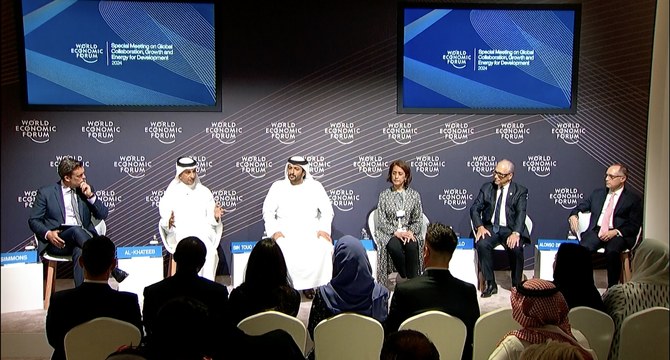
- Saudi Arabia's tourism sector is 'heading to achieve $80 billion this year' in private investment, Al-Khateeb told a WEF panel
LONDON: Developing human capital is a key challenge for Saudi Arabia’s travel sector, the country’s tourism minister has said on Sunday.
Ahmed Al-Khateeb, speaking during a two-day meeting of the World Economic Forum in Riyadh, discussed the Kingdom’s burgeoning tourism industry, which has boomed over the past half-decade.
To address the human capital challenge, the Saudi leadership has encouraged young people across the Kingdom “to join the sector,” he said.
“We are spending a lot to train (young Saudi talents) and scale them, and involve them in the sector,” he told the “Vacationomics” panel discussion, adding that hiring local experts is essential for delivering better tourism experiences.
“You get the best experience and you know more about other people’s culture and other nations’ cultures when you deal and interact with locals,” he said. “We want to make sure that our guests are served by local people.”
Saudi Arabia has delivered “strong growth in Q1 this year, and we are moving to deliver our 2030 numbers,” the minister said.
The Kingdom’s tourism sector “has come a long way” since the launch of the National Tourism Strategy as part of efforts to diversify the economy, Al-Khateeb said, adding that the industry is “heading to achieve $80 billion this year” in private investment.
Last year, Saudi Arabia attracted about $66 billion in private investment into tourism.
“We doubled the number of visitors coming from outside — 100 million in total … 77 million domestic (and) 27 million international,” he said. “This is double the number that we achieved before we launched our National Tourism Strategy.
“We have the funding. We have a great country. We have everything that the international tourists would like to see and experience.”
Jerry Inzerillo, chief of the Diriyah Gate Development Authority, told the panel: “What the Gulf and its leadership will do in the next 10 years is going to be breathtaking to allow people to come from all over the world.”
With “so much to do in the region,” Inzerillo said he believed the “warmth and hospitality” of the Saudi people is serving as a strong selling point for tourism in the Kingdom.
Though the traditional Gulf tourism market in Saudi Arabia is well developed, European tourism is “now activating” through new business with the Kingdom, he added.
“And as we sign more and more airline deals and… (the) Ministry of Tourism has done a brilliant job in getting bilaterals, you’ll see those numbers grow very exponentially.”
Other panelists included Abdulla Bin Touq Al-Marri, UAE minister of economy; Thiago Alonso de Oliveira, CEO of JHSF Participacoes; and Aireen Omar, president and CEO of RedBeat Capital.
Saudi Green Building Forum set to obtain UNCCD’s permanent observer status
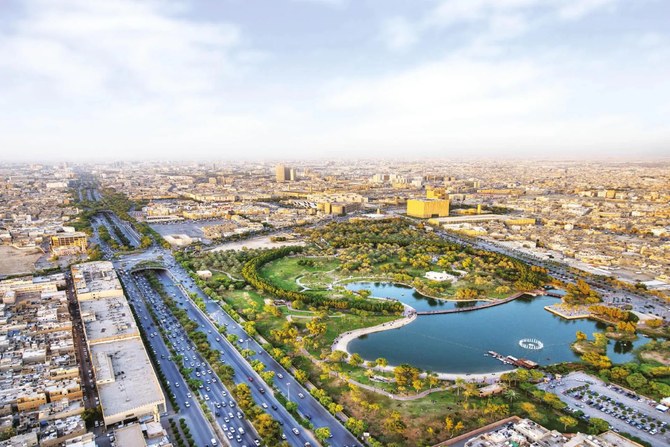
RIYADH: The Saudi Green Building Forum is set to obtain permanent observer status following the submission of a formal request to the UN Convention to Combat Desertification.
Pending a final decision during the 16th session of the Conference of the Parties to be held from Dec. 2-13 in Riyadh, this move underscores the forum’s efforts to enhance its role in sustainable development and combat desertification.
The forum, which has already been temporarily accredited, is involved in the proceedings based on the provisions of paragraph seven of article 22 of the convention and articles six and seven of the internal regulations of the COP, according to a press release.
This initiative is part of a broader strategy to integrate scientific and community-based approaches to environmental management.
Commenting on the development, Faisal Al-Fadl, secretary-general of the Saudi Green Building Forum, said: “We are pleased with the official notification from the UN Secretariat of the receipt of the required documents after a thorough review of the documents submitted for the accreditation of the forum as the first Saudi institution specialized in preparation for obtaining observer status for the Conference of the Parties to the UN Convention to Combat Desertification,” he stated.
“The efforts of local communities play a significant role in enhancing the sustainable development goals for people, plants, and prosperity through advocating for human experiences based on scientific rules and community health and well-being for healthy, fair, and resilient communities and cities, sufficient consumption and production, climate action in removing harmful carbon, and reducing the temperature to 1.5 degrees Celsius, addressing desertification, and managing natural resources and water,” he added.
The UN Secretariat confirmed the receipt of all necessary documents for the forum’s accreditation as an observer, encouraging further participation in the convention’s activities.
“After a thorough review of the documents submitted by your institution, we encourage you to continue participating in the implementation of the UN Convention to Combat Desertification and keep the secretariat informed of the activities,” the letter stated.
The Saudi Green Building Forum’s potential new status as a permanent observer at the UN Convention will enable it to contribute more effectively to global efforts against desertification, leveraging cooperation between developed and developing nations, particularly in sustainable land management and environmental restoration.
‘Two-state solution,’ investing in crisis resilience hold key to Mideast future, says Saudi minister
‘Two-state solution,’ investing in crisis resilience hold key to Mideast future, says Saudi minister
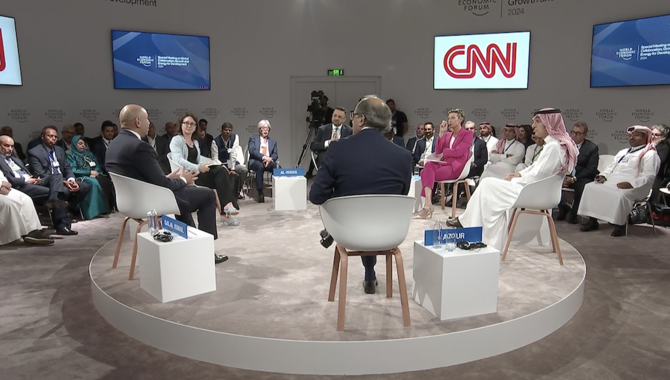
- Vision of regional development, prosperity ‘complicated by tensions,’ Adel Al-Jubeir tells WEF special meeting
RIYADH: The key to getting the Middle East region back on track toward development and prosperity is ending the Gaza conflict, the Saudi minister of state for foreign affairs said on Sunday.
Adel Al-Jubeir, who was speaking at the World Economic Forum Special Meeting being held in Riyadh, said the Israel-Hamas conflict raging in the enclave only served to “undercut” any attempts to integrate the region and “unleash its potential.”
He added that, considering its young population, abundant natural resources and strategic geographical location, the Middle East had all the ingredients to be a successful region.
The goal of policymakers in Saudi Arabia and beyond was to ensure these elements benefitted everyone and better linked the Middle East region with the rest of the world, Al-Jubeir said.
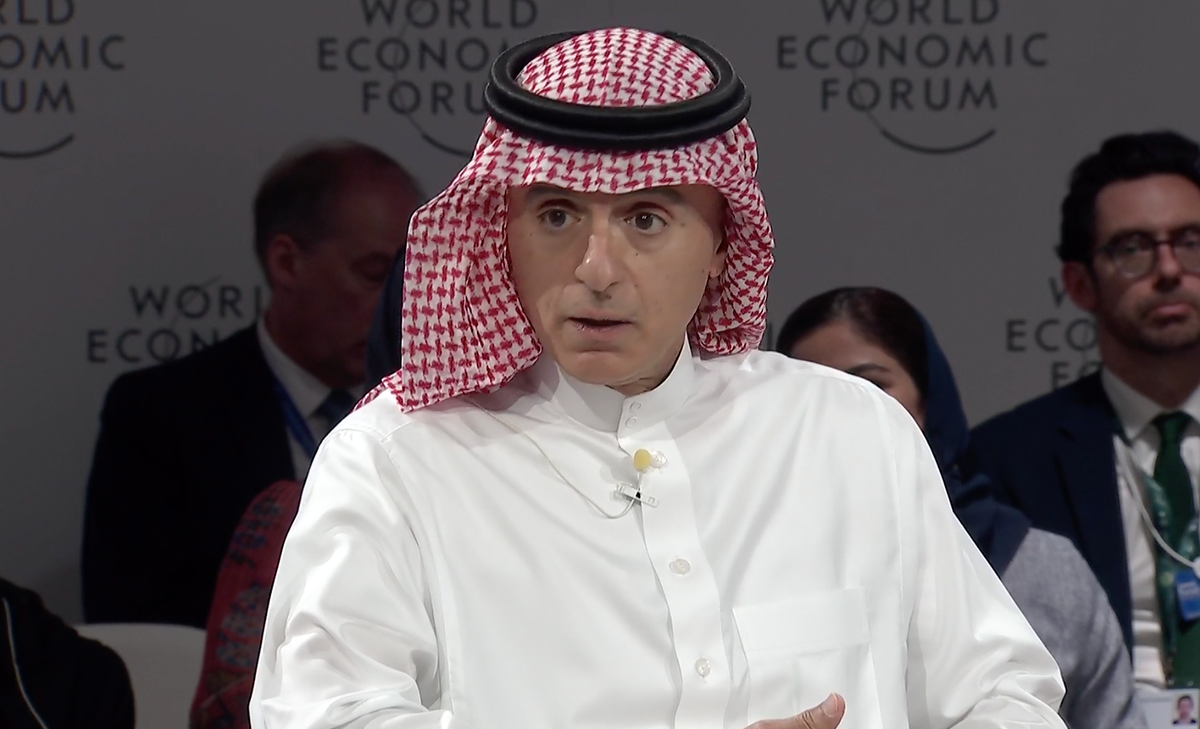
However, he said that this vision was “complicated by tensions” affecting the Middle East, and it was important to put an end to these in order to “focus on the things that matter” to developing its prosperity.
“(With the situation in Gaza), our number one priority is to stop the fighting,” he said. “Our second priority is to ensure enough humanitarian assistance goes into the Gaza Strip so that we avoid starvation, disease, and we take care of the people there,” he added.
“In the long term, we need to find a way to end this conflict (for good), and the only way we end it is by having a two-state solution, so we need to chart a clear, time-bound irreversible path to a Palestinian state.
“Saudi Arabia has said in terms of normalization (with Israel), this would be a part of that. The Arab world has had a position with regard to the Arab Peace Initiative, the US and the rest of the world supports this, so we need to make sure we stop the fighting, increase assistance and come up with a pathway to that Palestinian state,” he added.
When pressed by the panel moderator, CNN’s Becky Anderson, on whether a two-state solution would be possible with Benjamin Netanyahu and his right-wing government in charge in Israel, Al-Jubeir said it was in “everyone’s interest” to end the conflict.
“I’m not a mind reader or a psychiatrist; it’s not what I was educated in or my profession,” he said. “But what I can tell you is the interests of everybody in the region requires putting an end to this conflict, the potential that can be unleashed is tremendous, with good will, seriousness and foresight we should be able to get the ball over the goal line,” he added.
Mohamad Al-Ississ, Jordanian finance minister, also said the region had lurched from crisis to crisis over several decades, and told the WEF panel: “The one certain thing anybody can be certain of is that uncertainty is here to stay.”
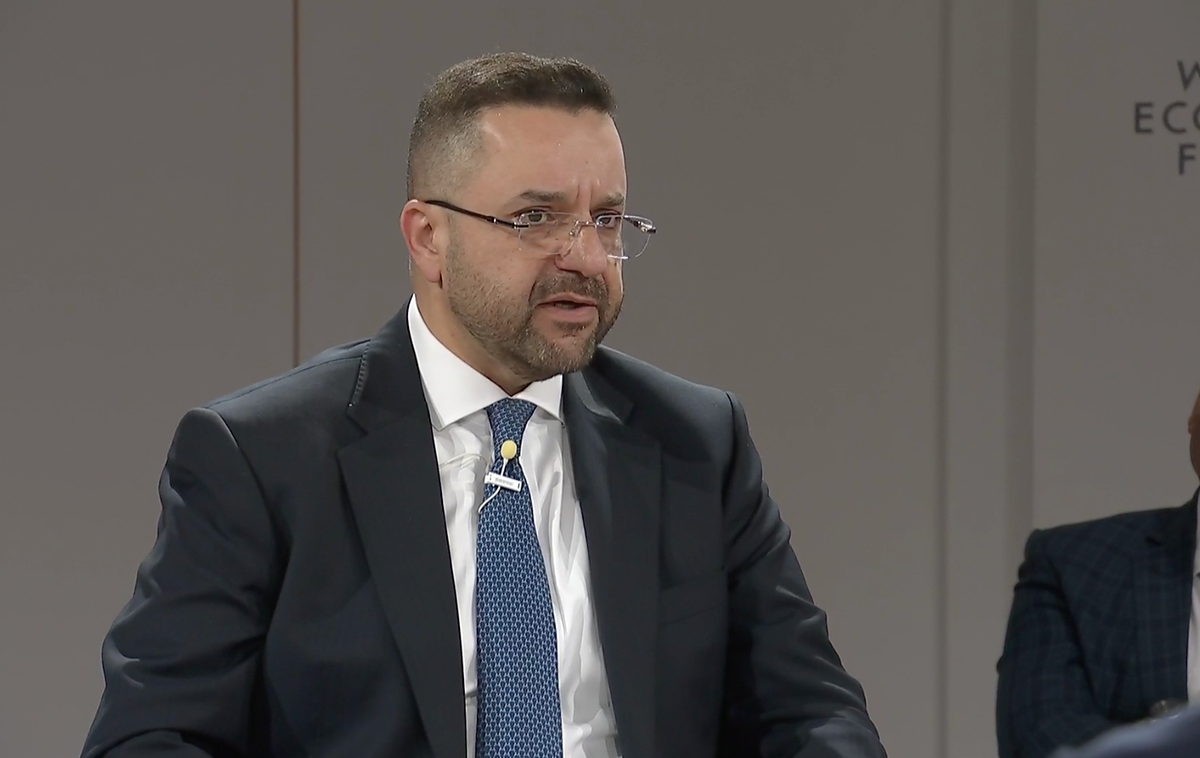
He said the role of policymakers in the Middle East should be investing and developing sectors that allowed the region’s economies to absorb and ride out the shock and impact that crises can have.
“The top priority is (determining) how to invest in enhancing your buffers, so that you can increase your resilience for when ‘black swan’ events, which have become the norm, unfold,” he said.
Ahmed Galal Ismail, CEO of UAE’s Majid Al-Futtaim Holding, agreed. He said that while peace and stability were “obviously indispensable to economic growth,” if the region just waited for it to happen, it could be “waiting for a long time.”
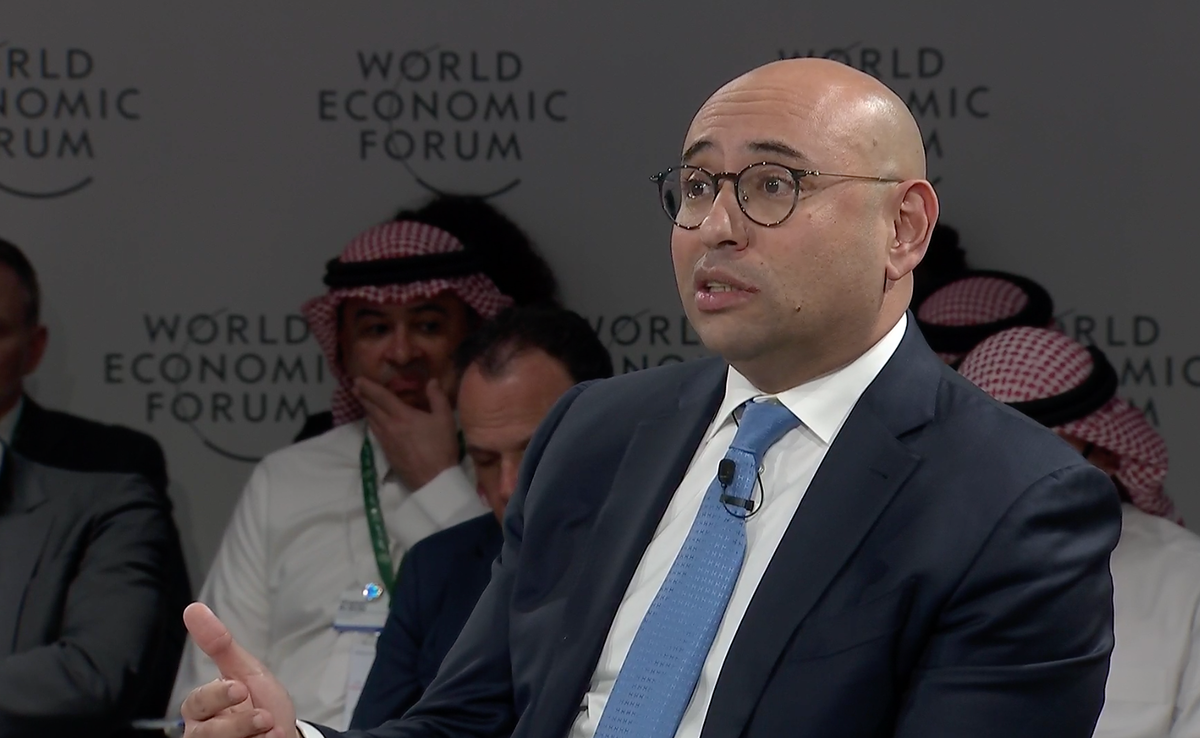
He cited an example of intra-Arab trading being at its highest-ever level, but added it was “anaemic” compared with other global blocs.
“We need to act. From a private sector perspective, we see opportunities independent from geopolitics and from the cruelty we see in parts of the region, so it is very important the actors in the sector are pragmatic, take the lead, and start what is needed to drive that economic integration.”



